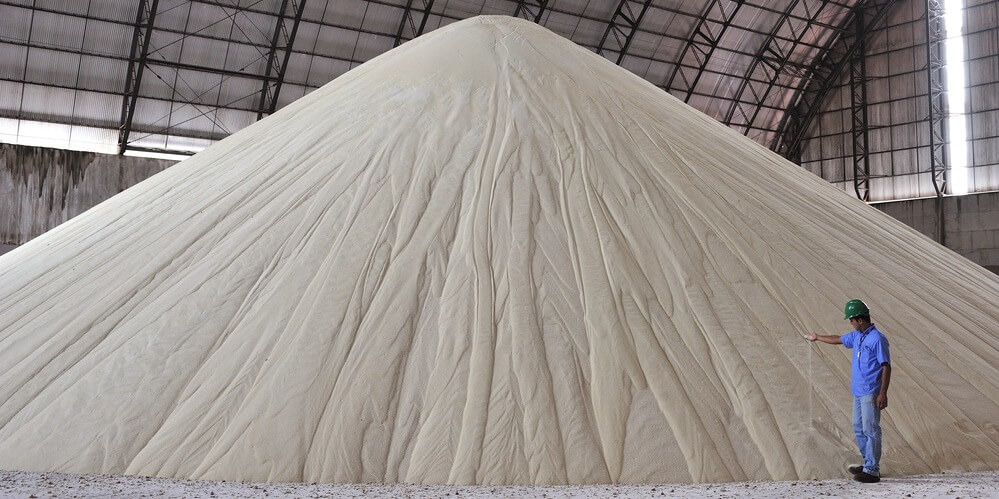
With halal certification, Brazilian sugar firm Energy eyes tripling of sales in Islamic countries
SÂO PAULO - Energy is the latest Brazilian sugar manufacturer to go halal as it eyes export growth to Islamic countries, and certification becomes mandatory for more food products and ingredients in key Muslim markets.
Brazil is a major sugar manufacturer and exporter. The country is good for some 20% of global production and 40% of total exports. Up to 70% of Brazil’s sugar is shipped around the world. In 2020, Brazilian sugar exports hit a record 30.9 million tons, an increase of no less than 70% compared to the previous year.
Energy was halal-certified by FAMBRAS on March 12 after around three months of consultations. A quick scan of FAMBRAS’ long list of certified companies includes Ingenio Pichichi, Alvean Sugar, Goiasa Goiatuba Álcool, Jalles Machado, Raízen Caarapó Açućar e Álcool, and Raízen Energia for many different types of products such as raw sugar, organic crystal sugar, white sugar, and crude sugar. Energy produces five kinds of sugar: refined, extra fine, crystal, demerara, and organic.
What sets Energy apart is that it is the only trading company in Brazil with its own container terminal at the Port of Santos and its own sugar packing facility.
With halal certification, Energy’s goal is to increase sales to Islamic countries, Head of Sugar Gustavo Algodoal Nogueira Anselmo told Salaam Gateway.
"We think we will be able to triple our sales in Islamic countries over the next two years," said Anselmo.
Energy produces around 20,000 tons of sugar a month. Half of the company’s production is meant for export and it keeps the other half for the domestic market.
Demand for sugar has not waived even amid the coronavirus that had a dampening effect on many trade sectors. In fact, demand is growing, according to Anselmo.
“We are observing a slow but steady growth in demand for all of our destinations,” said Anselmo, adding that the company intends to increase its capacity in the near future to meet the growing demand both at home and abroad.
“However, within the company there is an increasing awareness of the market potential in Arab and Islamic countries. And that is the direction our efforts will take in the coming years.”
With offices in Brazil, U.S. and The Netherlands, Energy currently exports to some 110 countries across the globe. In recent years, West Africa and the Americas, including the Caribbean region, were among its most prominent destinations.
“So far, relatively little has been shipped to the Islamic world,” said Anselmo. “Currently, we only export to countries such as the UAE, Guinea, Djibouti and Somalia. That is the main reason we’ve obtained halal certification. We are positive this will bring us more opportunities in this ever-expanding market.”
MORE CERTIFICATION
Energy's halal certification comes at a time when key Islamic markets such as Saudi Arabia and Indonesia require many more categories of food, beverages and their ingredients to be halal-certified.
According to FAMBRAS, Energy’s production and packing process as well as all products delivered by suppliers were checked for their halal compliance.
SUGAR DEMAND
Brazil’s record sugar exports in 2020 rests partly in its “spectacular harvest in the Centre and South region, which began in April 2020 and was more or less over by the end of November” according to Andy Duff, head of RaboResearch Food & Agribusiness South America in a research paper in January.
As a commodity economy, Brazil’s exports are further supported by the fall of the national currency, which over the past two years lost some 40% against the U.S. dollar.
“On a consumer level, organic products seem to be on the rise all around the world,” said Energy’s Anselmo. “Yet, we don’t perceive a noticeable change in the preference for one kind of sugar over another. Each market has a very specific preference and demand changes little, despite price changes and the availability of different types of sugar.”
© SalaamGateway.com 2021 All Rights Reserved
